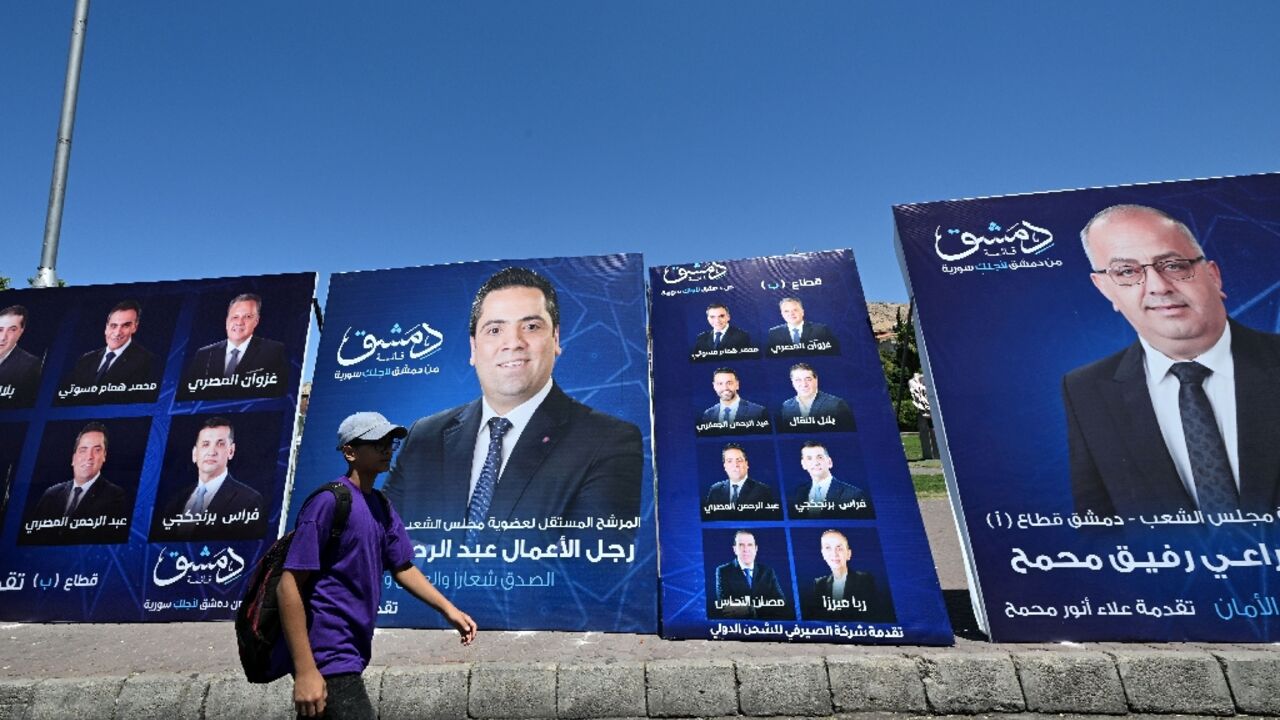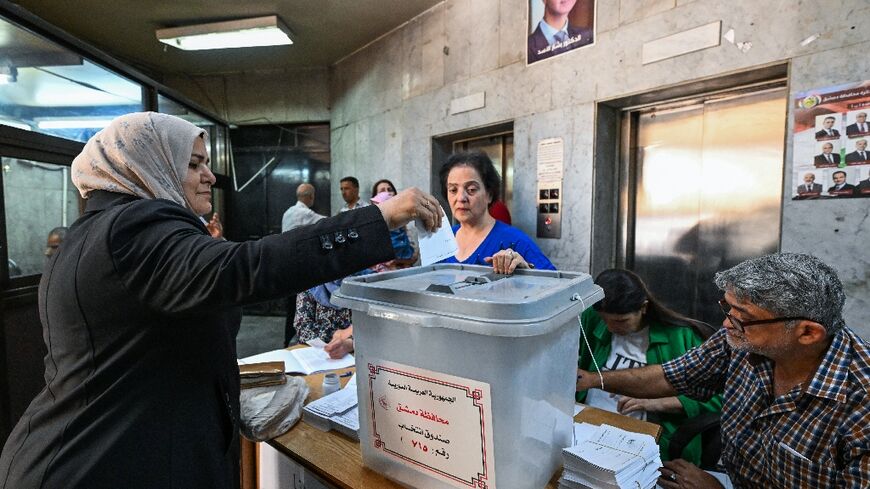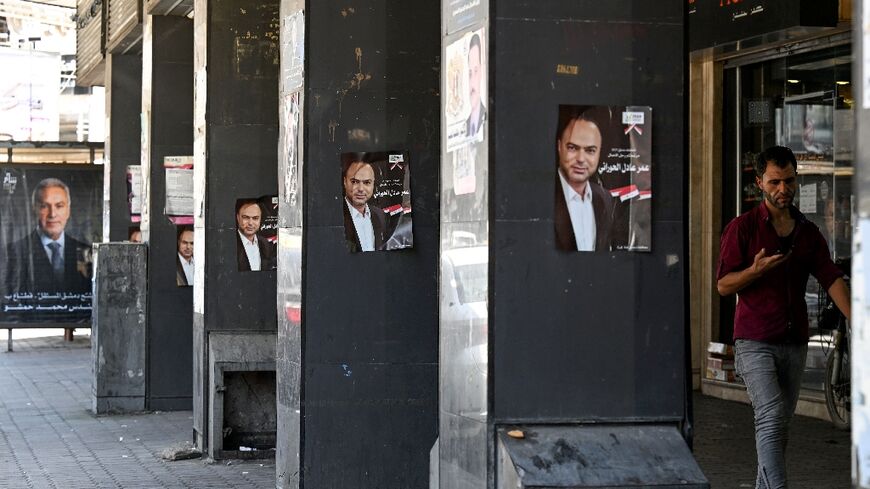No surprises expected as Syrians vote in parliamentary poll

Syrians in government-held areas were voting Monday in their fourth parliamentary election since civil war erupted in 2011, a poll expected to keep President Bashar al-Assad's ruling Baath party in power.
The Baath party -- in power since 1963 -- and its secular left-wing and Arab nationalist allies are running virtually unopposed, with independents the only alternative.
More than 1,500 people are standing for 250 seats in the largely rubber-stamp parliament, after some 7,400 candidates withdrew in recent days, according to Syria's Supreme Judicial Elections Committee.
"We have to take responsibility for electing good people and not repeating the mistakes of the past in voting for old names who can't change anything," said health ministry employee Bodoor Abu Ghazaleh, 49, among those voting at a polling station in Damascus.
Under Syria's quota system, 127 seats are reserved for candidates who are workers or farmers, while the remaining 123 are open to other professions.
The Baath party is expected to secure most of the seats in the legislative ballot, which is held every four years.
With help from key allies Iran and Russia, Damascus has regained control of much of the territory it lost early in Syria's 13-year-old civil war, which began with the repression of anti-government protests.
It spiralled into a complex conflict drawing in foreign armies and jihadists, and has killed more than 500,000 people and displaced millions.
In government-held areas, Syrians aged 18 and over and holding an identity card are eligible to vote at some 8,150 polling stations.
Syrians living in the Kurdish-controlled northeast, in areas held by Ankara-backed rebels along the northern border with Turkey, and in the jihadist-run Idlib bastion in the northwest are effectively disenfranchised.
Candidates are still vying for seats in those regions, but only voters living in government-held areas can cast ballots at specially designated polling stations.
In the capital, posters were on display for candidates for Idlib and for Raqa, a former bastion of Islamic State group jihadists now controlled by Kurdish-led authorities.
Polling stations are set to remain open until 7:00 pm (1600 GMT).
Millions of Syrians who have sought refuge abroad during the conflict also have no vote.
Syria's exiled opposition last week condemned the election as "absurd", saying that polls organised by the government "only represent the ruling authority", in the absence of a political settlement to the conflict.
United Nations-backed attempts to reach a political settlement have repeatedly failed, and talks since 2019 on revising the country's constitution have also stalled.




